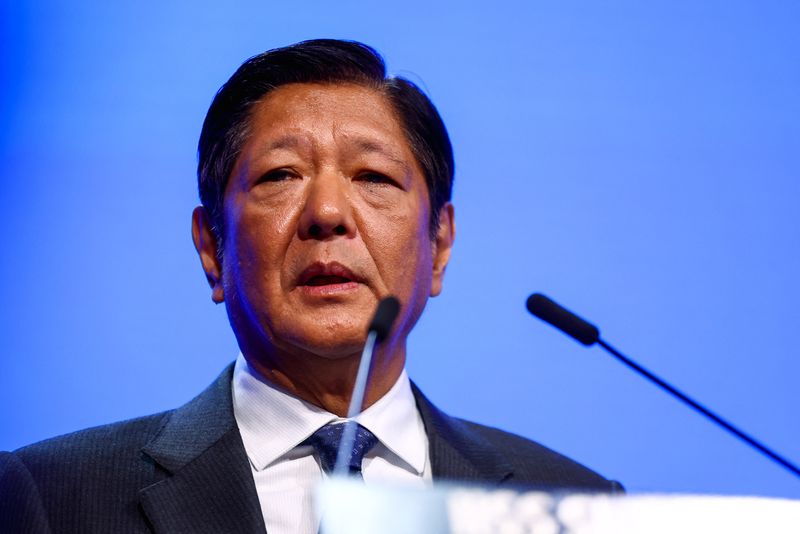MANILA (Reuters) -Japan, the Philippines and the United States vowed to further deepen cooperation under a trilateral arrangement in the face of rising tensions in Asia's waters, the three countries said following a call among their leaders.
Japanese Prime Minister Shigeru Ishiba, Philippine President Ferdinand Marcos Jr. and outgoing U.S. President Joe Biden met virtually on Monday morning Asian time. Marcos' communications office said the leaders "agreed to enhance and deepen economic, maritime and technology cooperation".
The call followed a first-of-its-kind summit meeting of Marcos, Biden and then Japanese Prime Minister Fumio Kishida in Washington last April to uphold international law and regional stability.
Biden, who will step down next Monday, was quoted as saying in Manila's readout he is "optimistic" his successor, U.S. President-elect Donald Trump, would see the value of continuing the partnership.
“Simply put, our countries have an interest in continuing this partnership and institutionalizing our cooperation across our governments so that it is built to last," Biden said.
Marcos said he is "confident" the three countries will sustain the gains in deepening their diplomatic ties.
The White House said in a statement the three leaders discussed China's "dangerous and unlawful behaviour in the South China Sea" and agreed on the importance of continued coordination in the Indo-Pacific region.
Japan's foreign ministry separately said in a statement the three leaders have opposed "unilateral attempts to change the status quo by force" in the East and South China Seas, without mentioning Beijing.
Japan and the Philippines - bound by bilateral defence treaties with the U.S. - are also both involved in separate territorial disputes with China in the East and South China Seas, respectively.
Marcos' office said Biden also commended the Philippine leader for his diplomatic response "to China’s aggressive and coercive activities in the South China Sea".
The Philippines last year ratified a military agreement with Japan that would ease the entry of soldiers into each other's country for joint military exercises. The three countries' coast guards also staged joint exercises in 2023.

A 2016 ruling of an international arbitral tribunal voided Beijing's sweeping claims for the South China Sea, saying they had no basis under international law, a decision China rejects.
Tensions between China and the Philippines have escalated in the past two years over run-ins between their coast guards in the South China Sea.